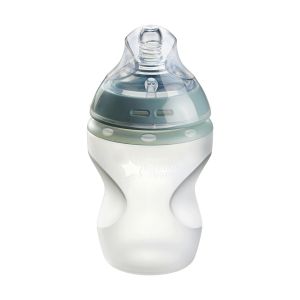
This is a demo store. No orders will be fulfilled.
Subscription orders can be cancelled at anytime. Standard delivery will be charged on each subscription order. Find out more about subscriptions.
They’re easy and fuss free
Your products are automatically sent to you
You save when you sign up for a subscription
You can cancel at any time
As a parent-to-be, early pregnancy can be an exciting time, but it's also a critical period for the growth and development of the baby.
The truth is, the first trimester can sometimes bring some of the most difficult pregnancy symptoms, and we understand it can be overwhelming. That's why we've created this guide to help you navigate through the first trimester.
We'll discuss common symptoms, offer practical advice, and provide answers to some of the most frequently asked questions about the first trimester of pregnancy.
Three trimesters make up a pregnancy. The first trimester sees foetal development start with the egg being fertilised and ends when the foetus has all its organs, and its body systems are developing. After the first trimester, you move into the second trimester, then the third trimester.
The first trimester is three months long. It starts on the first day of your last period and goes up to the last day of the 12th week of your pregnancy.
In the first trimester of pregnancy, a lot of changes happen. Although each pregnancy is unique, many people experience similar symptoms that are caused by fluctuating hormones.
Common symptoms experienced during the first trimester include:
People don't usually start to notice a baby bump developing until around week 10 of their pregnancy.
Some people can see a visible pregnancy bump by the end of their first trimester, while others can't. It just depends on your body and your baby's development, and it's so important to remember that each pregnancy is unique.
A baby grows very quickly during the first trimester, and it's amazing how much they develop in just a few short months!
In the first trimester, the embryo transforms into a foetus, and major organs and body systems begin to form. By the end, the foetus is about the size of a peach with all their major organs and body systems in place. They'll continue to mature throughout the remaining two trimesters.
Although the first trimester of pregnancy is a really exciting time, the truth is, it can be tiring! So, it's important to prioritise self-care and do what feels best for you and your growing baby.
These appointments are really important. They give your healthcare providers a chance to check on the health of you and your baby. During these appointments, you'll get lots of useful information and have the chance to ask any questions you have. Remember, there's no such thing as a silly question - especially during pregnancy!
All pregnant people in Australia are advised to take folic acid, iodine and vitamin D supplements.
You should speak to your pharmacist or doctor to make sure any medication you're planning to take is safe to use during pregnancy. This includes any medicines prescribed by a doctor or purchased from a shop or pharmacy, including painkillers.
You can absolutely give in to your chocolate craving during pregnancy, but it's also important to stay hydrated and eat well to support your baby's growth and to keep yourself feeling energised and healthy.
Maintaining an active lifestyle during pregnancy is a great way to keep your energy levels up, improve your mood, and get ready for childbirth. It's completely safe for your unborn baby, and as long as you feel comfortable, you can engage in gentle exercise throughout your pregnancy, unless you've been advised otherwise by your healthcare provider.
If you have any concerns or questions about any aspect of your health, your pregnancy, or your baby's development, don't hesitate to speak to your healthcare provider for advice and support.
Even though the symptoms you may encounter during your early pregnancy can be quite uncomfortable, a lot of the common ones we've discussed are completely normal. They can be considered good indications that your first trimester is progressing as it should.
However, it's also possible that you won't experience any of these typical first-trimester symptoms, and that's perfectly fine too. As long as your medical check-ups confirm that everything is going well, there's no need to be concerned.
It's important to be aware that certain symptoms can be warning signs during pregnancy. You should seek medical attention if you experience any of the following:
There are 12 weeks in the first trimester.
We asked our Instagram followers what the first trimester felt like for them, and here's what they told us:
Many parents say that their first trimester was the most difficult. But because every pregnancy is different, it's not possible to pinpoint which week within the first 12 is the hardest. Remember to go easy on yourself and don't compare your unique pregnancy experience with anyone else's.